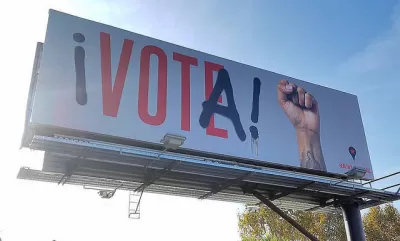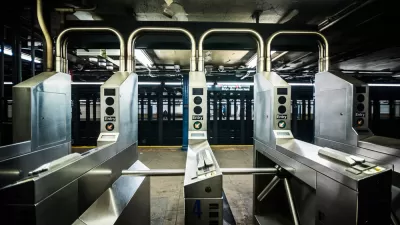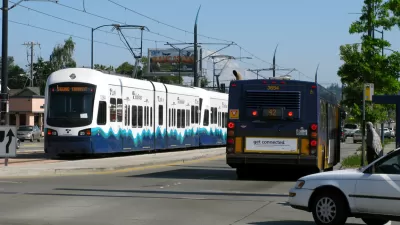Progressive agendas on transportation and housing won big in the November 2020, even if a "Blue Wave" failed to materialize on the national level.

A recent article by Patrick Sisson examines the idea of a "dramatic progressive turn" taking place at the local level in the United States, to use the phrase of Richard Schragger, a University of Virginia professor and author of City Power: Urban Governance in a Global Age as quoted in the source article.
Despite the absence of a "blue wave" in state legislatures, Congress, or even an overwhelming Electoral College victory for former Vice President Jose Biden, the huge amount of transportation funding approved by voters on November 3, along with a host of progressive urban boosters elected to city councils and other offices, are offered as evidence of that "dramatic progressive turn."
Sisson cites an expert for more examples of newly elected progressive leadership:
Ross Morales Rocketto, co-founder of Run for Something, which backs state and local progressive Gen Z and Millennial candidates, emphasizes the generational shift in local politics. Overall, Run for Something endorsed 525 candidates this cycle, with 202 victories, 77 races left to call and three runoffs as of Nov. 5. Among the winners: Gabriella Cázares-Kelly, an Indigenous candidate who declared victory in her race to be the new Pima County Recorder, which oversees elections in the Tucson area; she ran in response to other Native Americans being disenfranchised. And Nikil Saval, an Asian-American architecture critic and first-time candidate just elected to the Pennsylvania State Senate, ran in part on a “housing for all” agenda.
There are other examples, of course, like the growing number of New York City residents elected to the U.S. House of Representatives with a track record of support for public housing projects and programs.
A lot more analysis on the progressive victories in local elections is included in the source article.
FULL STORY: At the City Level, Progressives Flex New Power

Maui's Vacation Rental Debate Turns Ugly
Verbal attacks, misinformation campaigns and fistfights plague a high-stakes debate to convert thousands of vacation rentals into long-term housing.

Planetizen Federal Action Tracker
A weekly monitor of how Trump’s orders and actions are impacting planners and planning in America.

Chicago’s Ghost Rails
Just beneath the surface of the modern city lie the remnants of its expansive early 20th-century streetcar system.

Bend, Oregon Zoning Reforms Prioritize Small-Scale Housing
The city altered its zoning code to allow multi-family housing and eliminated parking mandates citywide.

Amtrak Cutting Jobs, Funding to High-Speed Rail
The agency plans to cut 10 percent of its workforce and has confirmed it will not fund new high-speed rail projects.

LA Denies Basic Services to Unhoused Residents
The city has repeatedly failed to respond to requests for trash pickup at encampment sites, and eliminated a program that provided mobile showers and toilets.
Urban Design for Planners 1: Software Tools
This six-course series explores essential urban design concepts using open source software and equips planners with the tools they need to participate fully in the urban design process.
Planning for Universal Design
Learn the tools for implementing Universal Design in planning regulations.
planning NEXT
Appalachian Highlands Housing Partners
Mpact (founded as Rail~Volution)
City of Camden Redevelopment Agency
City of Astoria
City of Portland
City of Laramie





























